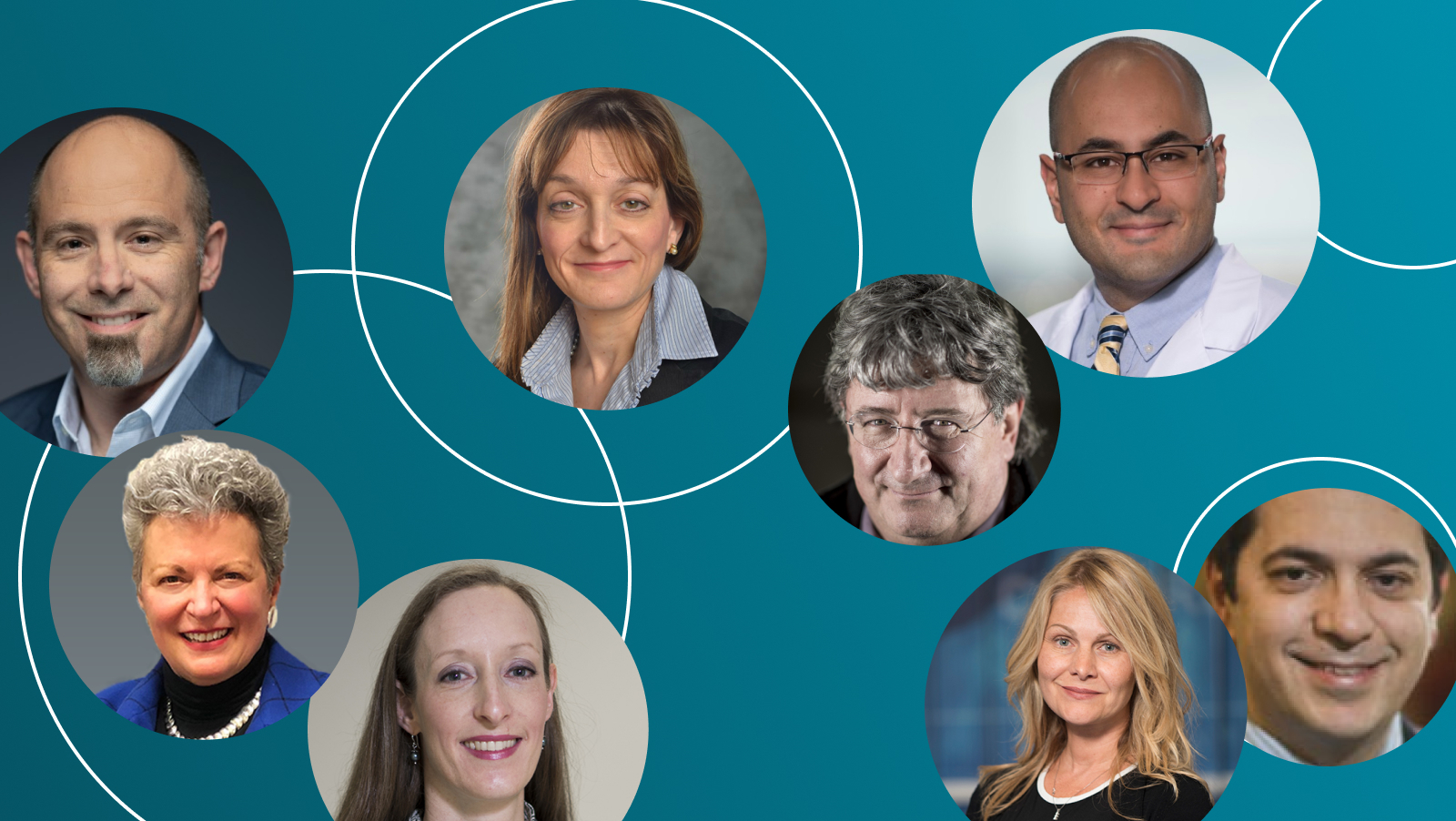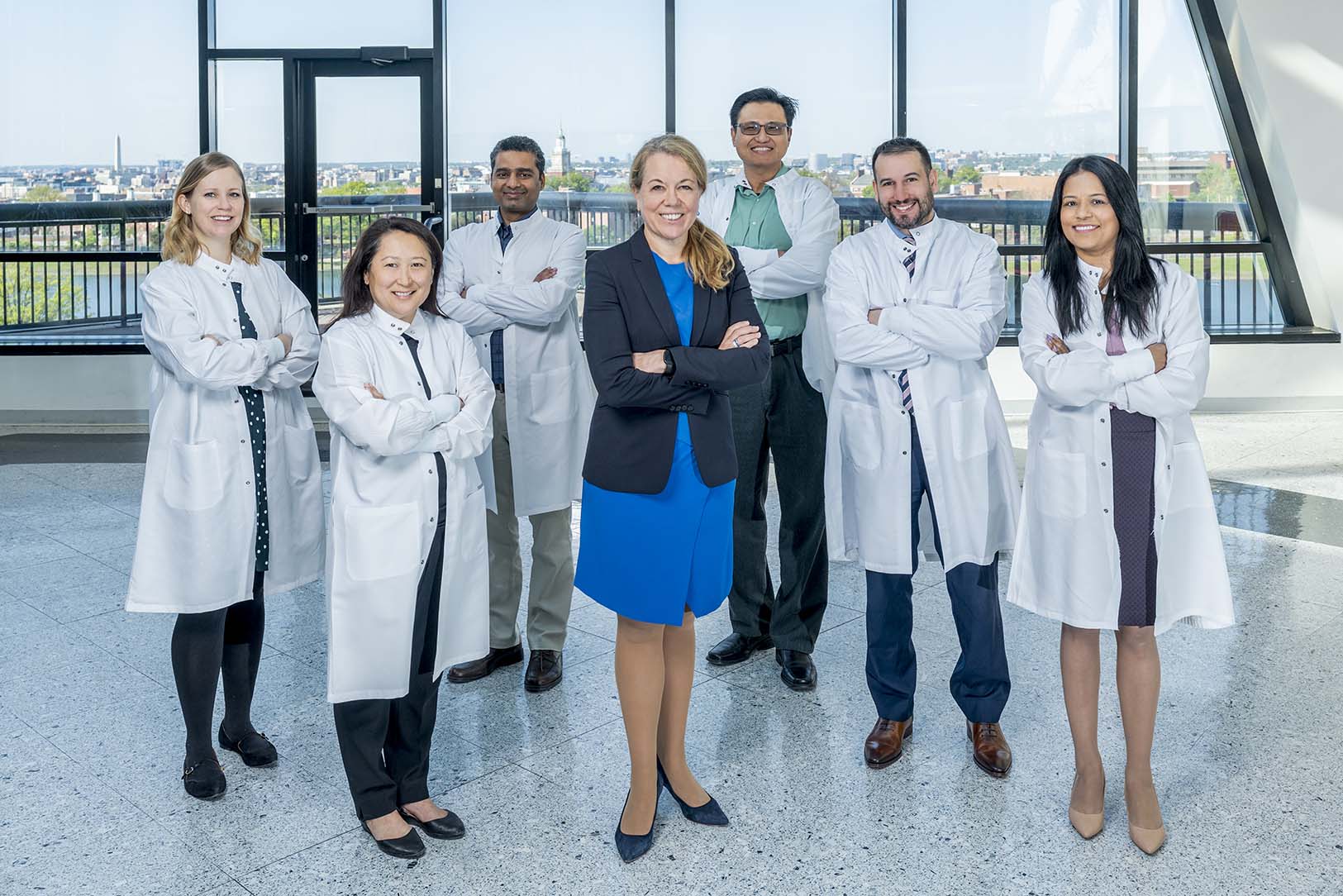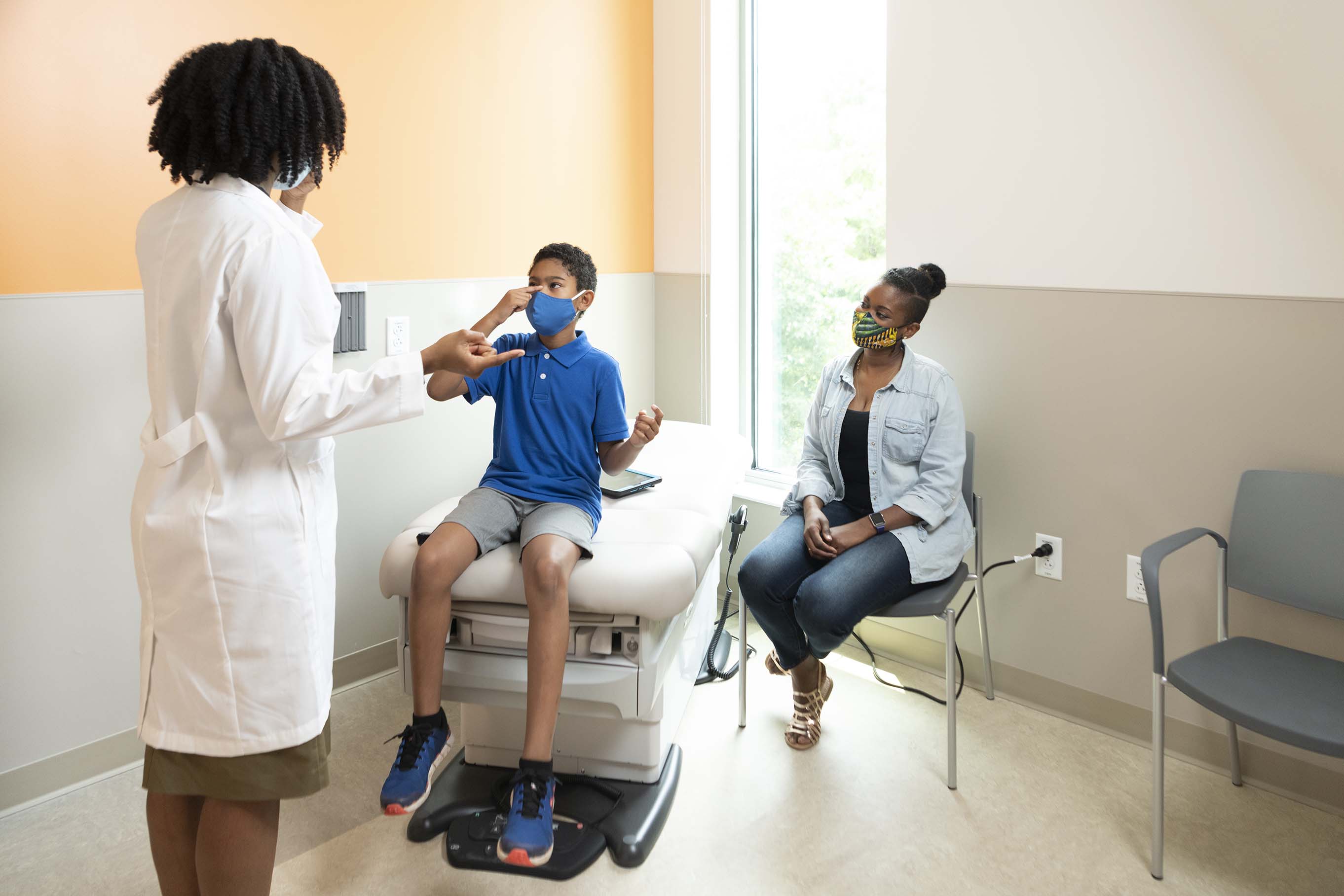CHILDREN'S NATIONAL RESEARCH INSTITUTE ACADEMIC ANNUAL REPORT 2022

SPOTLIGHT
Growth of our developmental disabilities program
Children’s National Hospital is committed to the highest standards of excellence in training and mentoring the next generation of scientists and physician-investigators. Offering a wide range of short- and long-term academic training and specialty programs that provide opportunities for researchers and innovators, we have had a year of tremendous growth. This is particularly true for our developmental disabilities program, which saw new grants for clinical research trainees, and the planning of our next phase for the Research & Innovation Campus.
Deciphering how viruses affect the developing brain
The National Institutes of Health (NIH) awarded Children’s National Hospital nearly $1M of research support toward uncovering the specific cellular response that happens inside a developing brain once it is infected with a virus, including how the neuron gets infected, and how it dies or survives. The research is expected to gather critical information that can inform prenatal neuro-precision therapies to prevent or attenuate the effects of endemic and pandemic viruses in the future.
We need to use all of the information we have from ongoing and past pandemics to prevent tomorrow’s public health crisis," –Youssef Kousa, M.S., D.O., Ph.D.
“We need to use all of the information we have from ongoing and past pandemics to prevent tomorrow’s public health crisis,” said Youssef Kousa, M.S., D.O., Ph.D., neonatal critical care neurologist and physician-scientist at Children’s National. “There is still a whole lot to learn and discover. We could eventually — and this is the vision that’s inspiring us — prevent neurodevelopmental disorders before a baby is born by understanding more about the interaction between the virus, mother, fetus and environment, among other factors.”
Different viruses, including HIV, CMV, Zika and rubella, injure the developing brain in very similar ways. This line of work was fostered first by the clinical research team led by Adre du Plessis, M.B.Ch.B., and Sarah Mulkey, M.D., supported by Catherine Limperopoulos, Ph.D., chief and director of the Developing Brain Institute at Children’s National.
The clinical research findings then led to the NIH support, which then inspired more basic science research. Fast forward to now, Dr. Kousa will study how Zika affects the human brain and extrapolate what is learned and discovered for a broader understanding of neurovirology.
The research program is supported by senior scientists and advisors, including Tarik Haydar, Ph.D., and Eric Vilain, M.D., Ph.D., both at Children’s National and Avindra Nath, M.D., at the NIH, as well as other leading researchers at various U.S. centers.
Finding the effects of premature birth in learning deficits
In the United States, one in 10 babies are born too soon, resulting in complications that can affect their locomotor development and influence such simple tasks as balance, walking and standing later in life. A new peer-reviewed study by Children’s National Hospital, published in the Proceedings of the National Academy of Sciences of the United States of America (PNAS), explores exactly what neural circuitry of the cerebellum is affected due to complications that occur around the time of birth causing these learning deficits, and finds a specific type of neurons — Purkinje cells — to play a central role.
Up until now, there has been a sparsity of techniques available for measuring neuronal activity during locomotor learning tasks that engage the cerebellum. To surmount this challenge, Children’s National used a multidisciplinary approach, bringing together a team of neuroscientists with neonatologists who leveraged their joint expertise to devise a novel and unique way to measure real-time Purkinje cell activity in a pre-clinical model with relevance to humans.
“With the new generation of extremely preterm babies, more sophisticated methods are essential for protecting their brains. The more we understand regarding these mechanisms, the more we’ll be able to help premature babies grow into teenagers and adults with the ability to live a functional life,” said neonatologist and author, Panagiotis Kratimenos, M.D., Ph.D.
Interdisciplinary training for expertise in neurodevelopmental disorders
A new program at Children’s National Hospital, known as the Leadership Education in Neurodevelopmental and Related Disabilities (LEND-CN), will provide interdisciplinary training to enhance clinical expertise and leadership skills while reducing the shortage of medical specialists — a hurdle also present nationwide. Participating institutions such as Children’s National Hospital, Howard University and University of the District of Columbia will enhance the care for children and families with neurodevelopmental disorders (NDD), including autism spectrum disorder (ASD).
The program seeks to improve the health of infants, children and adolescents with or at risk for NDD and related disabilities. LEND-CN will also prepare future leaders in this space to offer comprehensive support tailored to a child’s specific condition.
“There are very few opportunities for training a broad multidisciplinary team to work with and provide leadership in the neurodevelopmental and autism space,” said Andrea Gropman, M.D., neurodevelopmental pediatrics and neurogenetics division chief at Children’s National Hospital and principal investigator of the LEND-CN program. “This grant funding will allow the LEND-CN leadership and curriculum team to develop innovative training and leverage community resources, universities and institutions to provide a broad, diverse and inclusive training.”
Training on developmental disabilities
Adding to the other new programs on developmental disabilities, the main objective of the Postdoctoral Research Fellowship (T32) in Neurodevelopmental Disabilities Research at Children’s National is to train M.D. and Ph.D. post-doctoral fellows in research focused on neurodevelopmental disabilities (NDDs).
There is significant overlap of symptoms amongst the various neurodevelopmental disorders, suggesting overlapping mechanisms. Our trainees and mentors use cutting-edge techniques, including genetic, cellular/molecular, physiological, functional/behavioral and structural/dynamic imaging to engage in basic and translational NDD research projects.
Multidisciplinary training is emphasized in our program, supported by the variety of training opportunities and core facilities available at the participating institutions. Thirty mentors from Children’s National, George Washington, Howard and Georgetown Universities participate in the program to help develop and support careers of the trainees, including submission of a career award (K) application.
This grant is being led by Tarik Haydar, Ph.D., director of the Center for Neuroscience Research at Children’s National.
Built for growth
The expansion of our programs in developmental disabilities showcases how the Children’s National Research Institute has built for growth in the coming years. The new opportunities for clinical and post-doctoral trainees in areas like brain development, learning deficits and autism further accentuate our commitment to delivering breakthrough discoveries for pediatric care.

